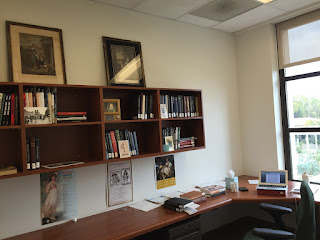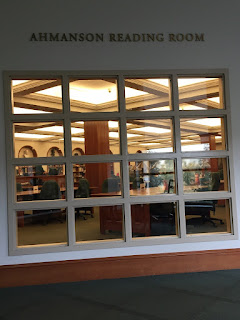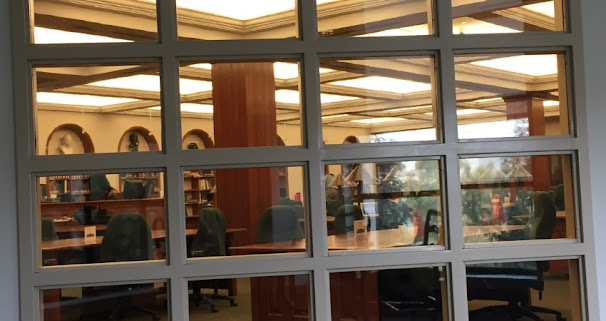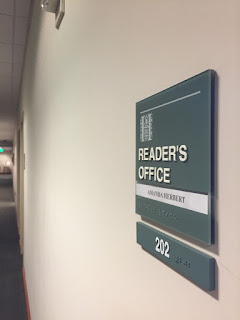Hello CNU Medieval and Renaissance Studies Scholars!
My name is Dr. Amanda Herbert, and I’m a professor in the History Department at CNU, where I teach courses on British, Atlantic, and European history c. 1500-1800. But today I’m writing to you from sunny San Marino, CA. I’m living in Southern California this year as I’m conducting research for my new book, entitled Spa: Faith, Public Health, and Science in the British Atlantic. In the spring of 2015 I won the Molina Fellowship in the History of Medicine and the Allied Sciences at the Huntington Library, one of the world’s greatest cultural, research, and educational centers. The Huntington was founded in 1919 by Henry E. Huntington, a railroad baron who built a financial empire in California. Huntington was a gifted and successful businessman, but he was also a remarkable patron of the arts and humanities: he loved rare books, manuscripts, art, and gardens, and he devoted much of his life (as well as many of his financial resources) to collecting great works of art, history, literature, and botany from around the world.
This means that the Huntington Library is one of the few repositories in the United States where scholars like me – whose work centers on the seventeenth and eighteenth centuries – can access and study primary sources from our place and period of study. Each year hundreds of scholars from around the world apply for research fellowships to the Huntington in order to spend time working in the collections, and each year twenty very fortunate people are chosen from that pool to be “Long-Term Fellows.” We make up the interdisciplinary faculty for the Huntington for the year that we’re in residence. This year my fellow-fellows come from many different colleges and universities, from UCLA to Columbia University, and from the University of Valencia in Spain to Northumbria University in the United Kingdom. And they work on all kinds of different topics: history, literature, religious studies, the history of science and medicine, studies of drama and theatre, art history and criticism. But we’re unified by our research projects, all of which are based in sources owned and preserved by the Huntington’s dedicated librarians, curators, and archivists.
 |
| Dr. Herbert's Office |
 |
| Ahmanson Reading Room, The Huntington Library |

